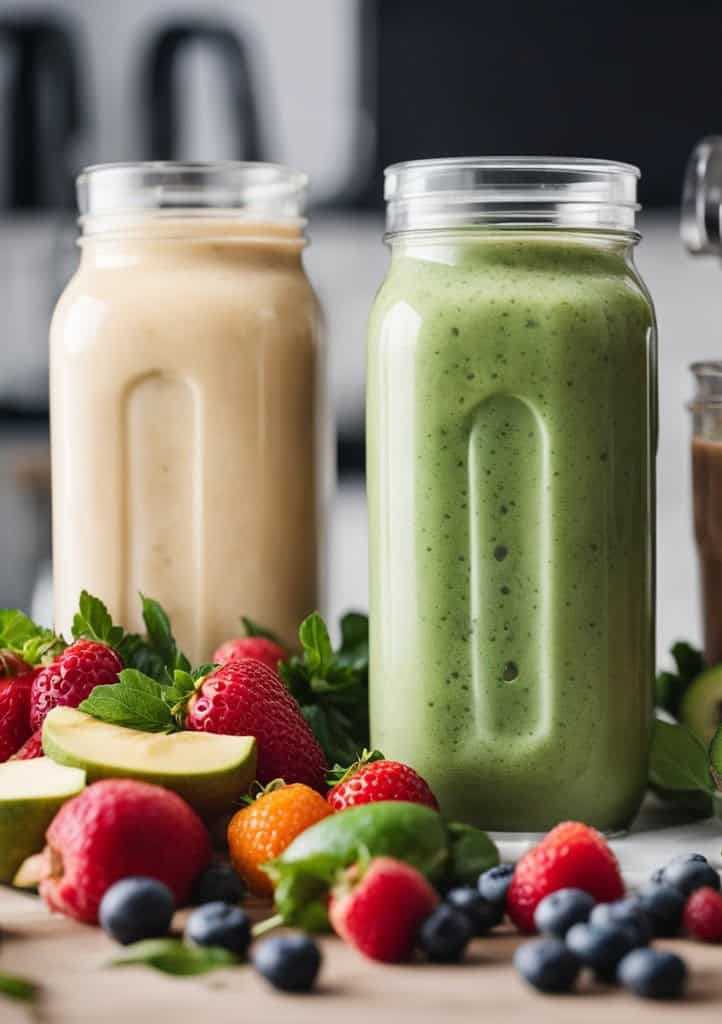Choosing the right protein powder can be a challenge, especially with so many options available. Vegan protein has gained popularity for being a plant-based alternative that suits various dietary needs. It not only supports a healthy lifestyle but also offers benefits that make it a great choice for everyone, regardless of your dietary preferences.
As you explore the world of vegan protein, you’ll discover how it can make a difference in your daily nutrition while being kind to both your body and the environment. By choosing vegan protein, you’re opting for a holistic approach to health that considers both personal wellness and global impact.
1) Easily Digestible
When you choose vegan protein, you’re opting for a supplement that is easier on your digestive system. This can be particularly beneficial if you experience stomach discomfort after consuming animal-based protein powders, which often contain lactose and other allergens.
Plant-based proteins like pea and hemp are known for being friendly to your stomach. These proteins are absorbed smoothly by the body and can prevent digestive issues. Choosing vegan protein can help you maintain a balanced and comfortable diet. Vegan protein powders are free from common allergens found in whey proteins.
These options are made from plants, so they naturally have higher fiber content. This added fiber helps keep your digestive system running smoothly and can even support a healthy gut. So if you’re prone to feeling bloated or having digestive trouble, vegan protein could be a helpful alternative.
2) Prevents and Slows Cancer
Eating vegan protein can play a role in preventing and slowing down cancer. Plant-based diets, such as those rich in beans, lentils, and tofu, have been linked to lower cancer risks. Including a variety of these foods in your meals helps you get plenty of nutrients and antioxidants.
The World Cancer Research Fund suggests that a balanced vegan diet aligns well with cancer prevention recommendations. It’s packed with fiber, vitamins, and minerals, which can keep your body’s cells healthier and potentially reduce the risk of cancer growth.
One fascinating study by Dr. T. Colin Campbell explored the effects of different protein levels on cancer development in rats. In this study, rats consuming a diet with 20% animal protein (casein) showed a higher incidence of cancer growth, whereas those on a diet with only 5% casein had reduced cancer development. Interestingly, even at higher levels, plant-based proteins did not promote cancer growth in the same way as animal proteins (source).
Following a plant-based diet can also help maintain a healthy weight, managing inflammation and hormone levels linked to cancer risk. Keeping your weight in check is crucial for lowering the chances of developing cancer, according to MD Anderson Cancer Center.
By swapping animal proteins for vegan sources, you could be making an impact on long-term health.
3) Eco-friendly Choice
Choosing vegan protein is not just a health decision, it’s also an earth-friendly one. Plant-based proteins generally require fewer resources, such as water and land, compared to animal proteins. This means less energy consumption and a smaller carbon footprint.
When you opt for vegan protein, you are supporting more sustainable farming practices. Growing plants often results in less pollution and waste. By choosing plant-based protein sources, you help reduce the demand for resource-intensive animal farming.
Vegan protein options like pea and rice protein can be part of a positive shift toward more sustainable food production. This can lead to better soil health and biodiversity. So, with every scoop of vegan protein, you’re doing something good for the planet while taking care of yourself, too.
Additionally, many vegan protein products are packaged in recyclable materials. This further minimizes environmental impact and helps reduce plastic pollution. It’s a simple step that makes a big difference, making your protein choice an eco-friendly one.
4) Supports Muscle Recovery

Vegan protein can play an important role in helping your muscles recover after exercise. Consuming protein after a workout aids in repairing and rebuilding muscle tissues, which can help you get back to your activities faster.
Plant-based protein sources, like pea or brown rice protein, are just as effective as their animal-based counterparts when it comes to muscle repair. Vegan proteins can reduce inflammation and support healing.
Choosing vegan protein with a mix of ingredients ensures you get a full range of amino acids. This diverse range of nutrients gives your body what it needs for muscle recovery.
Including a vegan protein shake or smoothie in your post-workout routine can make a difference. Blending your favorite fruits with a scoop of vegan protein powder and a plant-based milk gives you a tasty recovery drink that’s easy on the stomach.
5) Allergen-Free Options
When you’re choosing vegan protein, allergen-free options can make things much easier, especially if you have food allergies. Many people have allergies to common protein sources like dairy, nuts, or soy. Thankfully, you can find proteins that don’t cause issues, such as those found in pea or rice protein powders.
For those allergic to soy, consider quinoa. It’s a complete protein, meaning it has all the essential amino acids your body needs. Quinoa is versatile and can be used in salads, bowls, or as a side dish to add a protein boost to your meals.
If you’re hunting for allergen-free protein powders, check out some specialized vegan protein powders. They often come with no added sugars and are made from hypoallergenic ingredients, perfect for clean eating and feeling your best.
This approach ensures you’re not missing out on protein while avoiding any allergens. So explore and enjoy the many tasty, safe options available!

